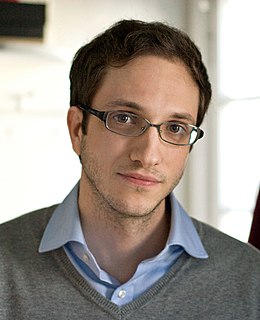A Quote by Thomas Carlyle
Culture is the process by which a person becomes all that they were created capable of being.
Related Quotes
As many critics of religion have pointed out, the notion of a creator poses an immediate problem of an infinite regress. If God created the universe, what created God? To say that God, by definition, is uncreated simply begs the question. Any being capable of creating a complex world promises to be very complex himself. As the biologist Richard Dawkins has observed repeatedly, the only natural process we know of that could produce a being capable of designing things is evolution.
If thinking is like perceiving, it must be either a process in which the soul is acted upon by what is capable of being thought, or a process different from but analogous to that. The thinking part of the soul must therefore be, while impassable, capable of receiving the form of an object; that is, must be potentially identical in character with its object without being the object. Mind must be related to what is thinkable, as sense is to what is sensible.
In the process of burning out these confusions, we discover enlightenment. If the process were otherwise, the awakened state of mind would be a product dependent upon cause and effect and therefore liable to dissolution. Anything which is created must, sooner or later, die. If enlightenment were created in such a way, there would always be a possibility of ego reasserting itself, causing a return to the confused state. Enlightenment is permanent because we have not produced it; we have merely discovered it.
When we unravel the theological tomes of the ages, the makeup of God becomes quite clear. God is a human being without human limitations who is read into the heavens. We disguised this process by suggesting that the reason God was so much like a human being was that the human beings were in fact created in God's image. However, we now recognize that if was the other way around. The God of theism came into being as a human creation. As such, this God, too, was mortal and is now dying.
[I]n Africa I was a member of a family—of a sort of family that the people of your culture haven't known for thousands of years. If gorillas were capable of such an expression, they would tell you that their family is like a hand, of which they are the fingers. They are fully aware of being a family but are very little aware of being individuals. Here in the zoo there were other gorillas—but there was no family. Five severed fingers do not make a hand.
The term 'web-series' has a stigma attached to it because it was created at a time when the only web-series that were being created were being created by people who would have loved to have a television show, but they couldn't. So they created a web-series instead, on their own dime. And those series look cheap because of it.
When culture is created in boardrooms with a panel of six or seven strategists for the masses to follow, to me that is no different than an aristocracy. It's not created from the people in the middle of the streets, so to speak. It is created from a petri dish for the sake of making money, and it is undermining the longevity of the culture.
Were it not for this [dissatisfaction], the perfect painting might be painted, on the completion of which the painter could retire. It is this great insufficiency that drives him on. The process of creation becomes necessary to the painter perhaps more than it is in the picture. The process is in fact habit-forming.
Scientific culture created a framework within which individual mobility was possible without threatening hierarchical work-force allocation. On the contrary, meritocracy reinforced hierarchy. Finally, meritocracy as an operation and scientific culture as an ideology created veils that hindered perception of the underlying operations of historical capitalism.







































